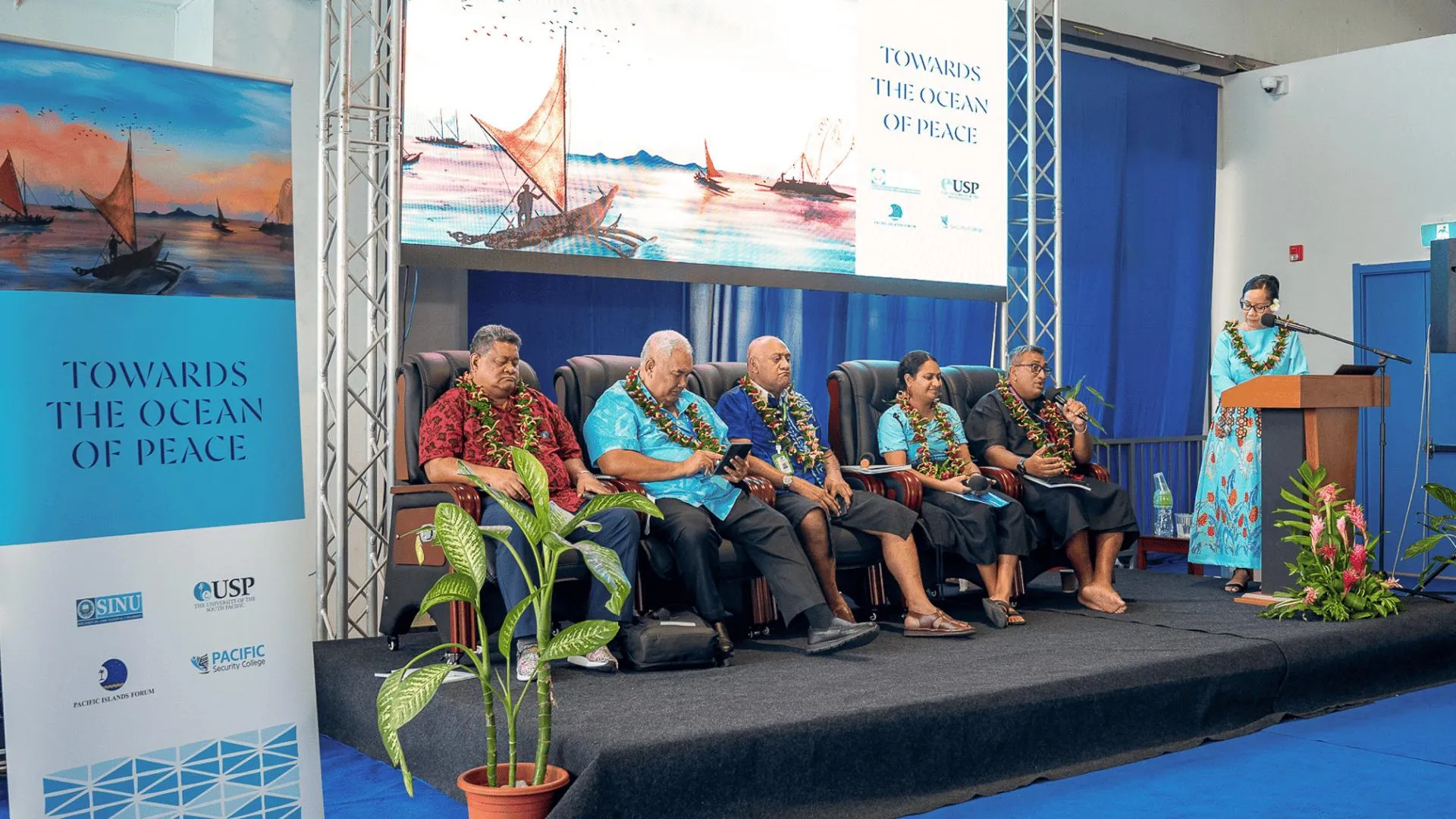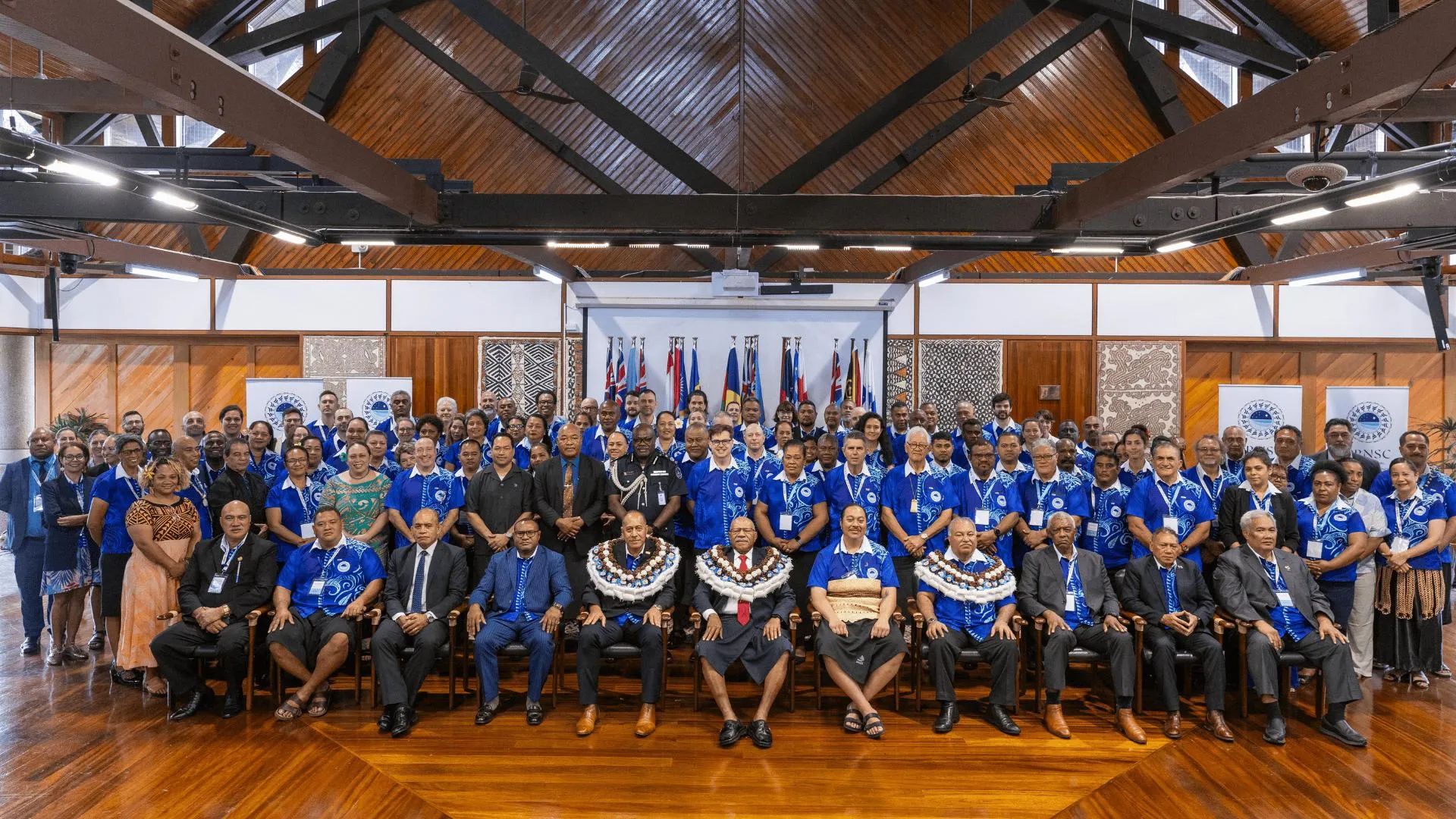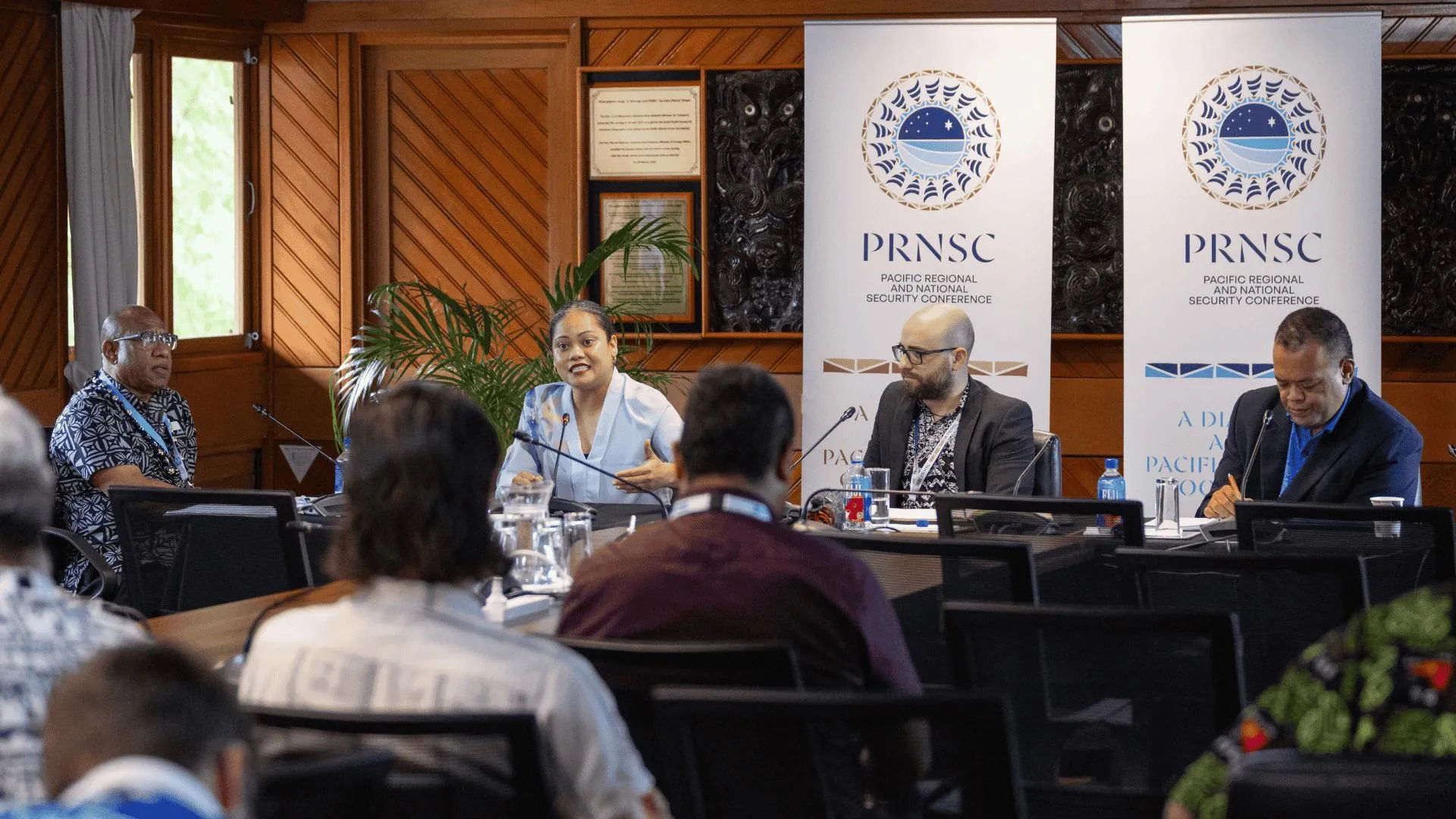Women driving change in Pacific security, but barriers remain
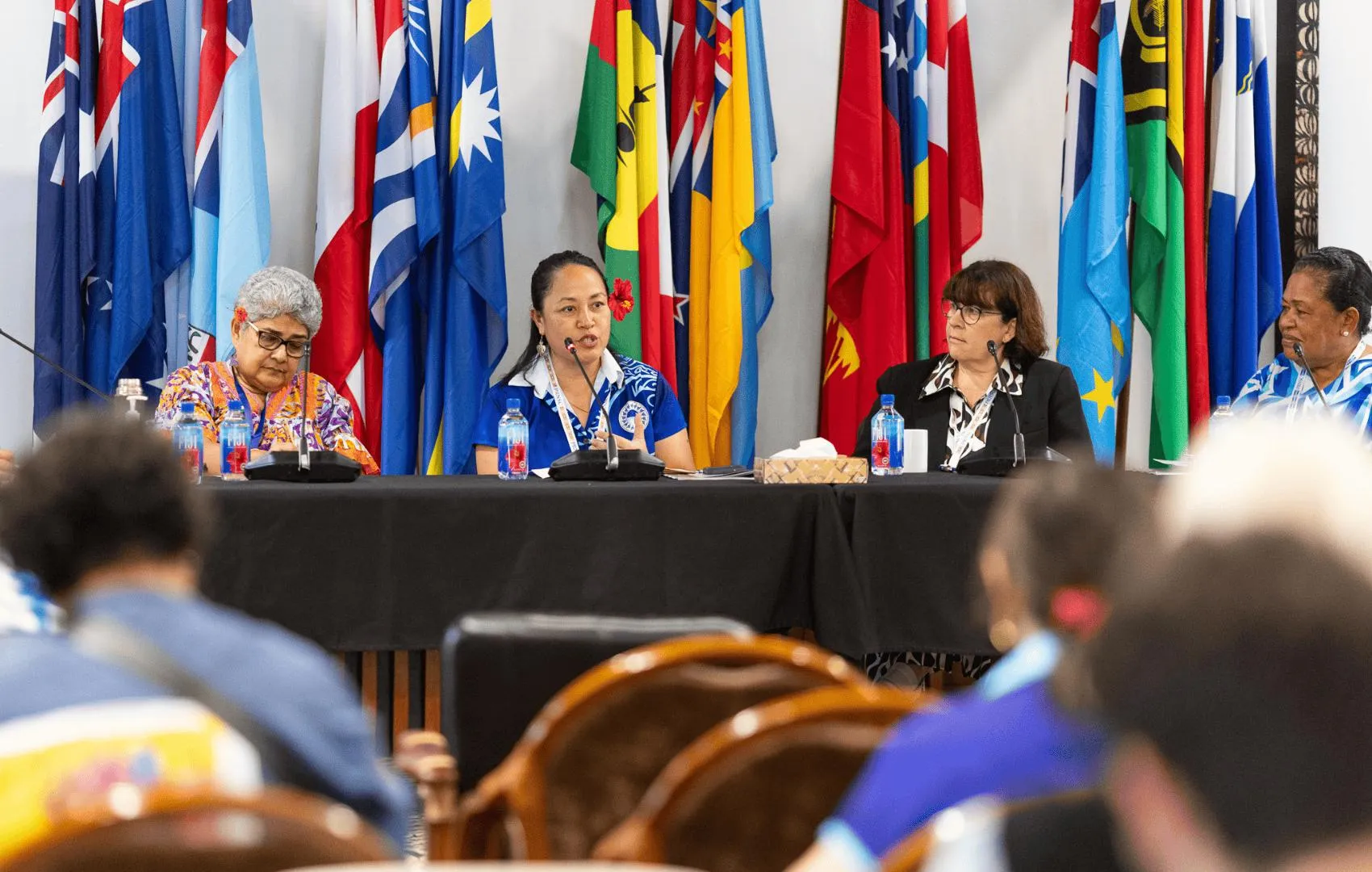
The Women, Peace and Security panel at the Pacific Regional and National Security Conference 2025.
Progress has been made in advancing women’s participation in peace and security across the Pacific, but challenges remain, according to female leaders from the region’s security sector.
The Women, Peace and Security panel at the Pacific Regional and National Security Conference explored the ways women contribute to safer and more peaceful societies, while also confronting the barriers that continue to undermine their full participation in security agencies and national decision-making.
Samoa Police Service Deputy Commissioner Papāli‘i Monalisa Tia‘i-Keti said the number of women recruited into the service had increased and there was growing recognition of the skills women bring to law enforcement.
“Our traditional view of security has always been from a male perspective, and now this is an opportunity for us, women and minority groups, to have a platform to raise and to also address security issues from a female perspective,” she said.
“There has been positive change for us, but there continues to be challenges, not only for Samoa Police, but for policing across the region.”
The panellists discussed how women in Pacific security agencies continue to face systemic barriers, including gender bias, workplace harassment, and the sidelining of their voices. Weak internal processes further compound these challenges, making it difficult for women to raise concerns or drive change within their organisations.
Change at the organisational level was highlighted as critical and panellists raised the need for inclusive recruitment and leadership pathways that enable more women to contribute meaningfully to security.
New Zealand Police Acting Deputy Commissioner for Northern Districts, Jill Rogers, said it was important for organisations to reflect and represent their communities.
“Whether it be a gender issue or a diversity issue, we have to make our organisations look like places that people want to work,” she said.
Acting Deputy Commissioner Rogers said New Zealand Police had made good progress in increasing the number of women in senior ranks in the past decade, including doubling the number of female sergeants and growing the number of female senior sergeants by two-and-a-half times. The organisation has also quadrupled the number of Pasifika people, and the number of Wāhine Māori (Māori women).
“When you’re trying to think about building an inclusive place for people to come that represents your community, there’s some really good work being reflected through all levels of the organisation. But it’s certainly not finished,” she said.
“At the moment 26% of our frontline staff are female, and that still doesn’t feel like enough. But it’s certainly very different from the days when I joined and two women weren’t allowed to work together.”
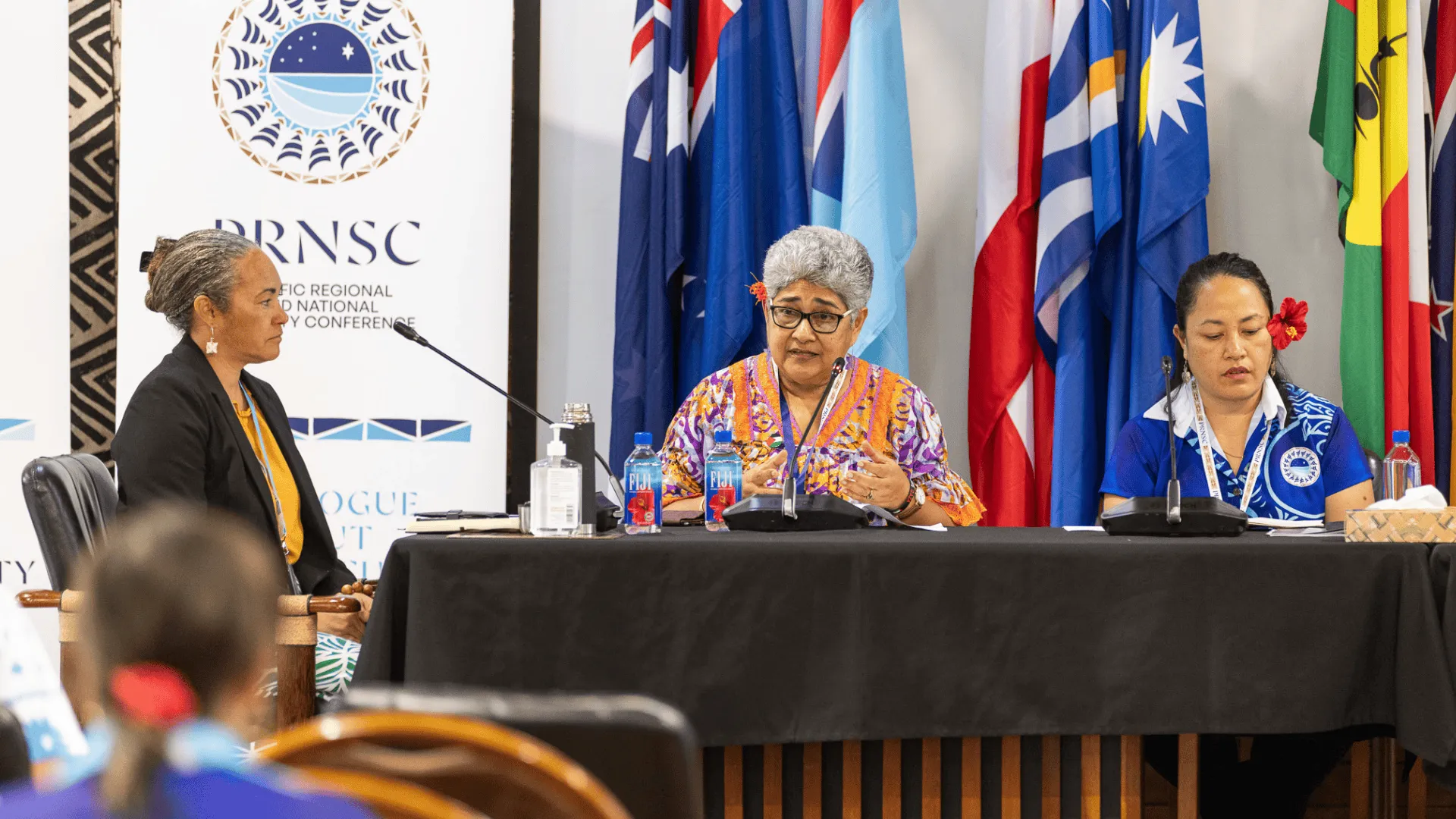
Shamima Ali, Coordinator of the Fiji Women’s Crisis Centre, speaks at the Pacific Regional and National Security Conference.
While strengthening representation in security institutions is important, speakers emphasised that the Women, Peace and Security agenda must also tackle the broader factors affecting women’s safety and wellbeing across the Pacific region.
Shamima Ali, Coordinator of the Fiji Women’s Crisis Centre, raised the high rate of violence in the Pacific, which is double the world average.
“In Kiribati, Solomon Islands, Vanuatu and Fiji, two in three women suffer from sexual, physical and emotional violence. And also in Fiji, in the last 12 years, we have had 57 deaths of women at the hands of mostly at their intimate partners, husbands, boyfriends and so on. That is not a good picture,” she said.
“Looking at the Pacific and Fiji, women are not at all secure where they should be the most secure – in our own homes.”
Ms Ali encouraged greater participation of women in the security sector, and for women’s voices to be better included in consultation and decision-making processes related to security issues. She stressed that equality and equity were both important.
“A woman’s place is everywhere, right? The kitchen, the workplace, everywhere that she wants to be,” she said.
“That opportunity should be there, but we have to recognise the uneven playing field and enable an environment for women to thrive in.”
Ms Ali suggested that more training, including gender sensitisation training, should be rolled out across the region.
“Once people understand the dynamics of gender power relations – why the playing field is unequal, why affirmative action is necessary – the results are better.”
Colonel Litea Seruiratu (ret’d) was the first woman to serve in several senior roles in the Republic of Fiji Military Forces (RFMF), including Chief of Staff. She was in the military when it adopted the Women, Peace and Security agenda in 2018.
“The Women, Peace and Security agenda recognises that integrating a gender perspective into conflict prevention strategies can help to address the root causes of conflict and promote sustainable peace. It also encourages the integration of gender considerations into military planning,” she said.
Mrs Seruiratu acknowledged there were cultural factors that could be barriers to including and considering women in security issues.
“Norms and biases can hinder women’s participation, especially in the Pacific Islands. But we can also change this around and use culture, especially traditional leaders, effectively to advocate for the women, peace and security agenda, because they can reach out to the grassroots.”
